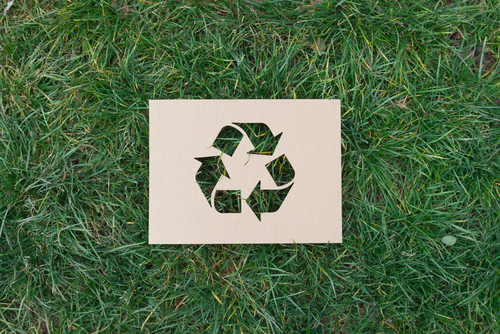 |
Even as more colleges and universities add “sustainable” degree programs, they are also seeing the light when it comes to their own waste management practices. One of these is American University (AU), in Washington D.C., where the zero waste mantra became a fight song in 2010 when the school adopted a 100% Zero Waste Policy. Since then, AU has participated in events to get the student body involved, as well as efficient waste reduction and collection programs, including:
- Placing 1st in the National RecyleMania competition in 2012;
- Implementing a campus-wide organic waste collection in 2013 that has equipped all residence halls with bins that separate different types of organic waste;
- Diverting about 13% of AU’s landfill wastes simply by composting restroom paper towels,
- Composting all kitchen waste from a dining room and café and using waste grease to produce electricity and hot water;
- Reducing food service wastes by 32% by eliminating trays;
- Replacing bottled water with filtered water;
- Partnering with local organizations to recycle/reuse furniture;
- Creating e-recycling programs for university and student electronics;
- Recycling vehicle wastes, including lubricants, antifreeze, oil filters, tires, and batteries; and
- Recycling 12.43 tons of cardboard used during student move-in last year.
Learn how to identify and evaluate external resources that can help you develop and implement an effective and comprehensive universal waste programe during our in-depth webinar on April 16, 2014.
Register Now
Out West, the Sierra Nevada Brewing Company in Chico, CA, is setting the bar high for other craft brewers that want to be waste-free. In 2012, Sierra Nevada Brewing reached 99.8% of solid waste diverted from landfills through “creative measures” to reduce, reuse, and recycle, including:
- Installing a HotRot composting system to convert organic waste from the brewery and restaurant into compost used on the company’s farms and gardens.
- Sourcing packaging locally when possible and using the highest possible amount of recycled content while maintaining standards.
- Using spent hops, grain, and yeast for cattle feed.
- On-site conversion of 100% of waste vegetable oil into biodiesel for company trucks (They also have two electric car-charging stations available on-site.).
- Although not a landfill issue, the company also is working to reduce its use of water and has an on-site treatment facility for pretreatment before discharge to the local water supply. Biogas from the treatment is recycled to offset natural gas use in the company’s boilers.
Join us us on April 16 for an in-depth webinar where our expert, a seasoned EHS professional who has helped many companies establish compliant programs for EPA’s universal waste regulations, will provide a tested road map for developing and implementing a cost-effective, compliant universal waste program
In Kansas City, MO, Hallmark Corp., has been practicing the three Rs as far back as the 1940s and one of its distribution centers has been a ZWL facility since 1998. With that experience under its belt, the company has since achieved even greater waste reduction accomplishments such as:
- Achieving 95% landfill waste diversion achieved at two Kansas production facilities with a Missouri distribution center close behind and new zero-waste programs at the company’s headquarters.
- Using 20% or more recycled fiber in many cards sold in the United States (with ongoing research into alternative fibers and nontree stocks).
- Donating excess cafeteria food to local food banks and locally composting Kansas City wastes for use on-site in a rain garden and at the nearby Ronald McDonald House garden, which is tended by Hallmark employees.
- Hosting an annual employee “E-Waste Day” and providing for collection of toner cartridges, eye glasses, and glass bottles for reuse and recycling.
- Donating proceeds from recycling cans and bottles at one distribution center to a local children’s hospital (raising $300,000 in 2011).
- Hallmark is also a member of the Kansas City Regional By-Product Synergy Project to help turn unwanted waste materials of one process into raw materials for use in another.
More information about waste reduction is available from the Environmental Protection Agency’s Waste Wise Program at http://www.epa.gov/epawaste/conserve/smm/wastewise/about.htm.
